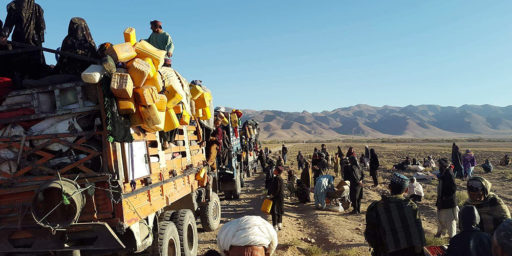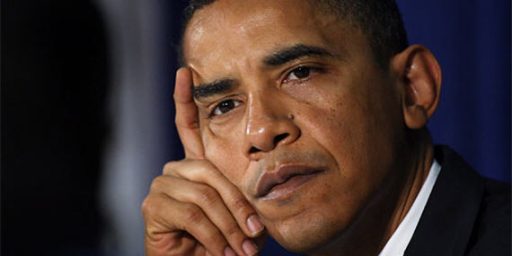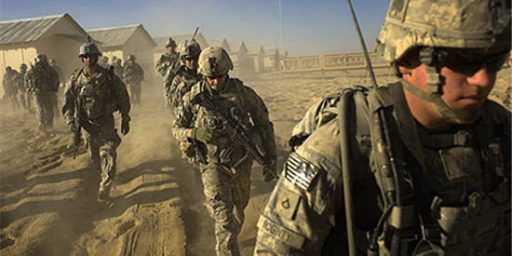Taliban Derailed by Dead Commanders
The Taliban’s attempt to re-take Afghanistan has been “stalled” by the killing of several of its key leaders, according to the Telegraph‘s Thomas Harding.
The Taliban’s much-vaunted spring offensive has stalled apparently due to lack of organisation after dozens of middle-ranking commanders were killed by British troops in the past year, according to military sources. The death last week of the key Taliban leader Mullah Dadullah at the hands of American special forces has harmed the Taliban’s morale to the point that local commanders are having to tell their troops to “remain professional” despite the loss.
After suffering more than 1,000 dead in battles with the Parachute Regiment and Royal Marines in the last year, the Taliban retired to regroup and re-equip last winter. A spring offensive was ordered by the Taliban leadership based in Quetta, Pakistan, and was meant to be launched in late March. But a lack of mid-level commanders has meant that there has been little co-ordination to bring about the offensive. “They are getting strategic guidance from Quetta but this is not translating on the ground,” a military source said. “It’s a bit premature to discuss the Taliban as a spent force. I believe that they are struggling but still maintain a capability to carry out attacks on a daily basis. But I would suggest in the long term the Taliban may just peter out.”
Great news if true.
In traditional warfare, even counter-guerrilla warfare, taking out key leaders has always been effective. In its modern incarnation, experts like John Robb argue, it matters much less because guerrilla activity is not coordinated hierarchically but organically, with tiny cells learning from and inspired by movement leaders but independent of them. Certainly, that has seemed to be the case in Iraq, where the killing of the number one this and the number two that has happened so many times that it has quite literally become a joke.






It is true that cells can operate independently but the cells and the insurgency becomes much less effective. Good insurgency does more then simply exists to be an irritant. To accomplish policy goals, power or overthrow of a government it takes coordination of forces. Otherwise nothing much happens and insurgency will loss almost all of its steam.
Killing number one and two is not a joke for those who do it. It is about like the draft in some sense. Once the top two prospects is pick then you have the number one and two after that and number one and two after that an so on. Once you go down in the list the quality usually declines but you never know who will be the surprise sleeper. They seem to think it is important enough to conduct many rounds to find quality players.
Also the fact that someone replaces the top dog doesn’t mean taking out the top dogs is irrelevant. The replacement usually doesn’t have as much experience and is less effective.
Good insurgency does more then simply exists to be an irritant. To accomplish policy goals, power or overthrow of a government it takes coordination of forces.
Classically, this is true. Robb, and to an extent Thomas Barnett, argues that these new insurgencies are not interested in taking power. They win simply by making the existing governments fail. Chaos is an endstate, not a means.
True James. A prime example of this is some of the drug lords’ insurgency in some Central and South America countries. They are not interested in running the country but they do have policy goals. If nothing more then causing chaos to limit border enforcement and making it easier to bribe local law enforcement. Blogs is to limited to go into too great of details about different insurgencies.
That being said to accomplish that level of chaos and desired policies, it almost always takes coordinated efforts. Random violence accomplishes little except irritation and random results. We have random violence in the U.S. for that matter.
I’ve gotten the impression that the Taliban is still acting more like a state than an insurgency. I might be wrong, it just seems like the attacks they sponsor are less guerrilla like than what you see in Iraq.